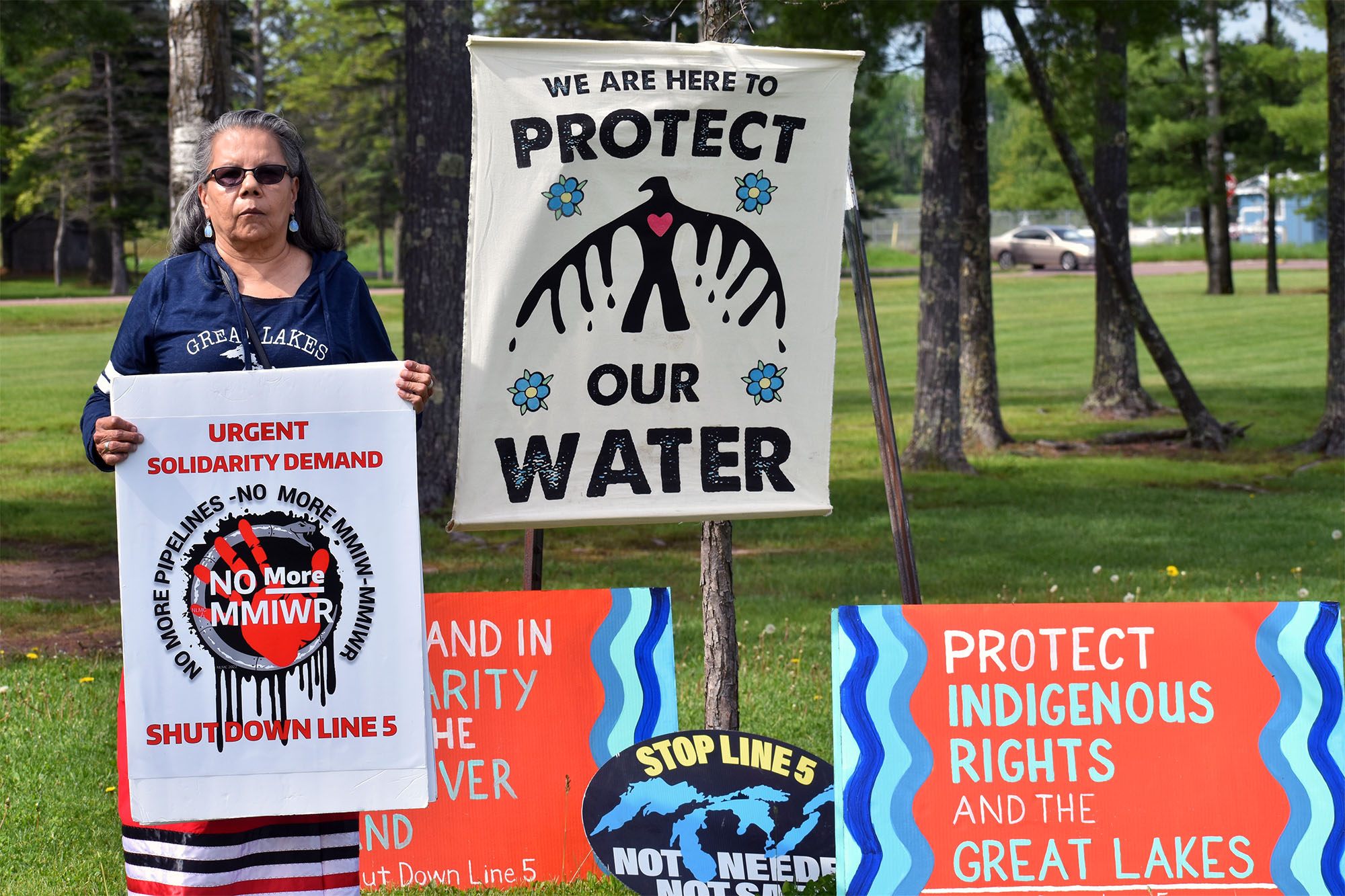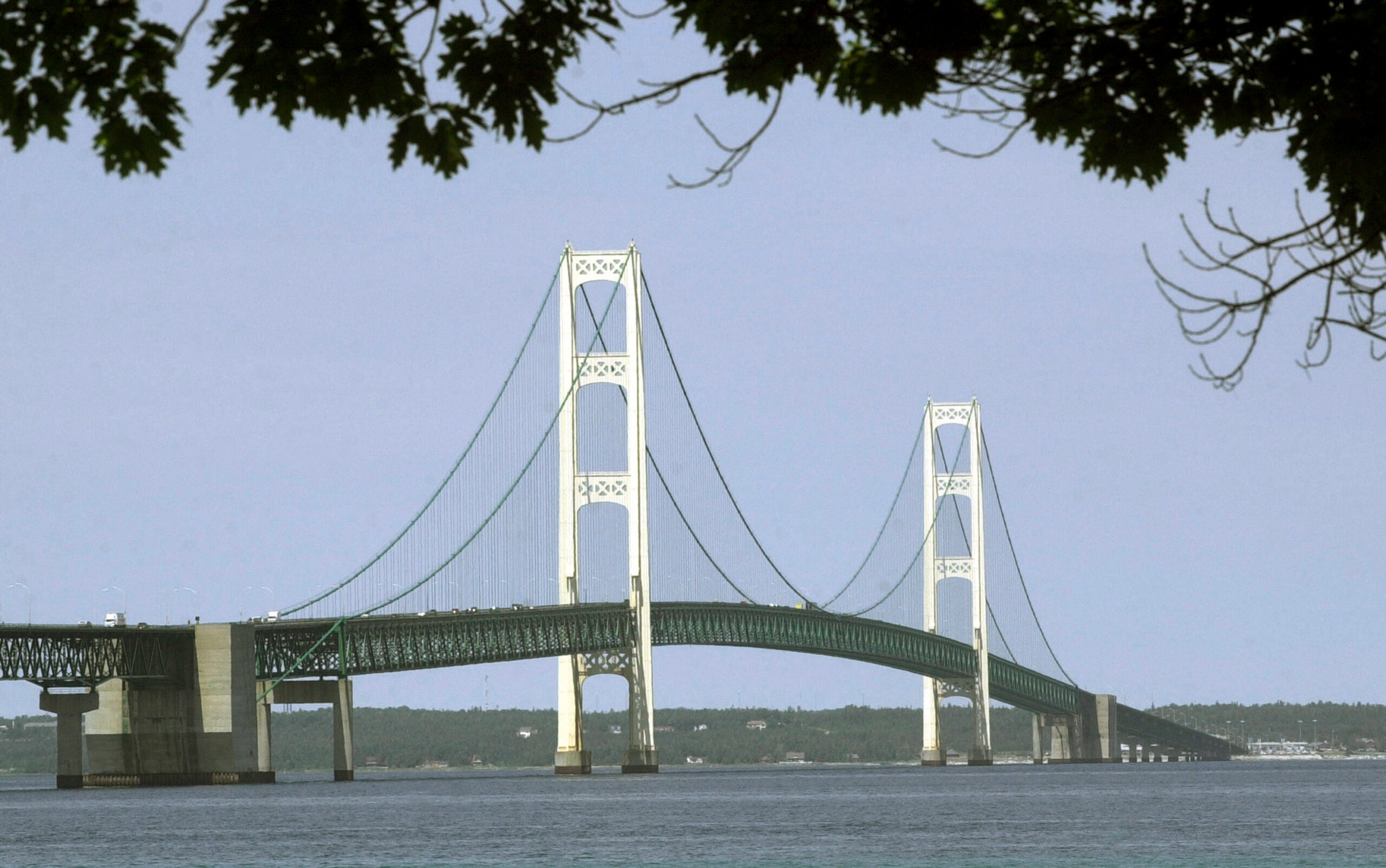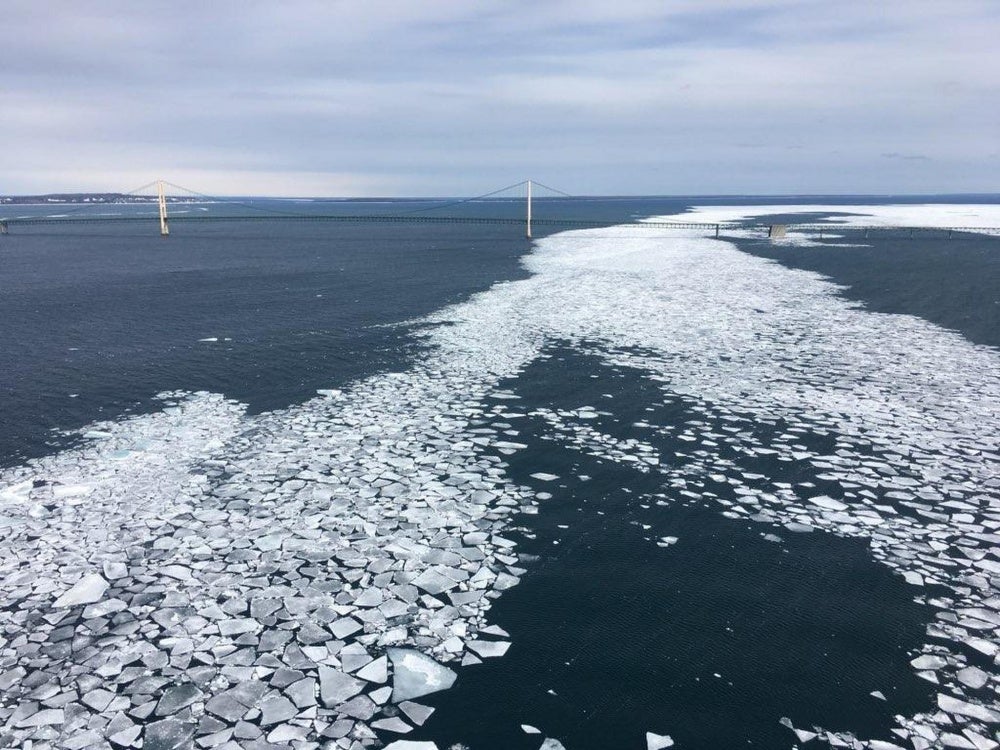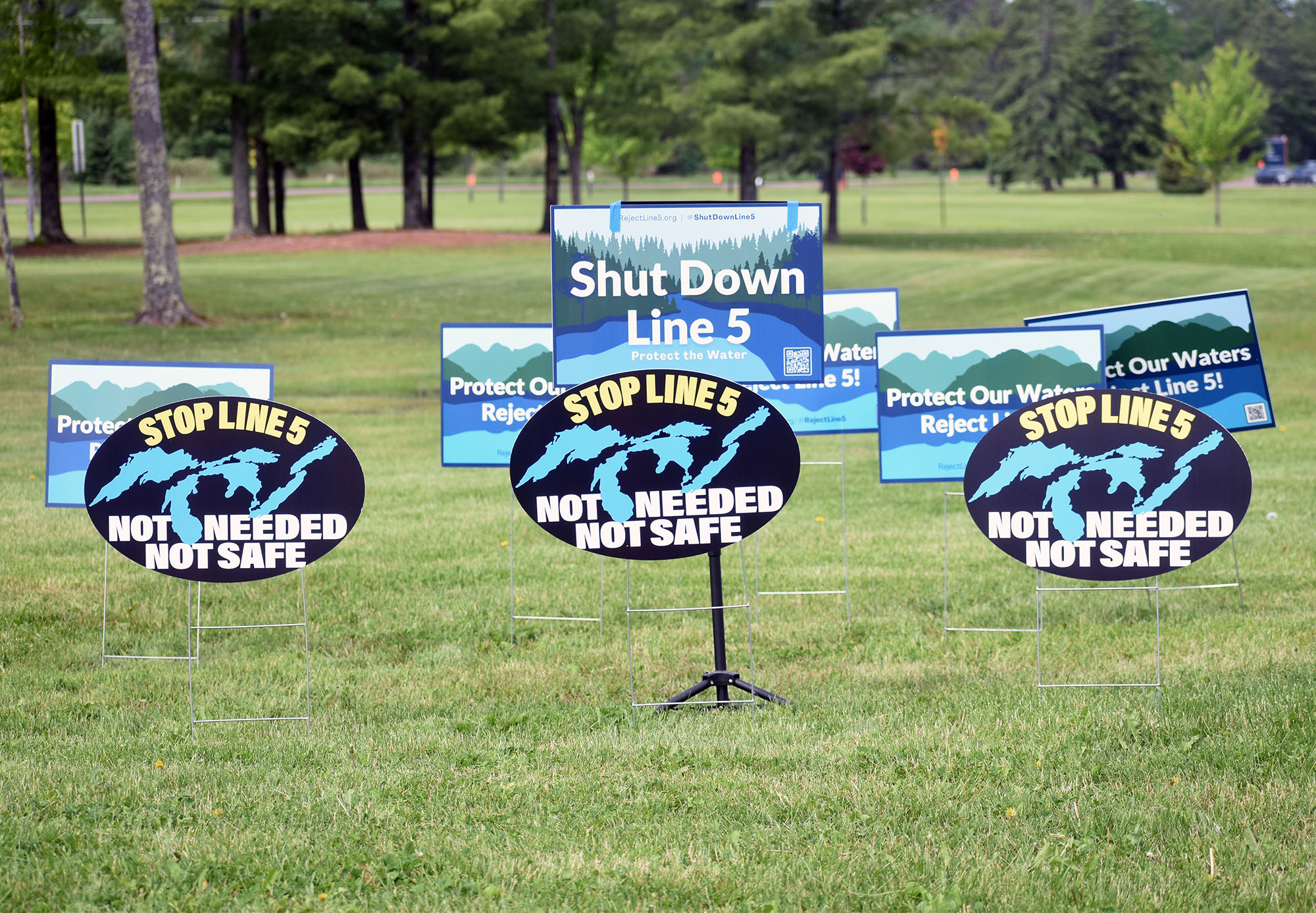After securing key state permits, hurdles remain for Enbridge’s controversial plan to reroute Line 5 around the Bad River tribe’s reservation, including legal challenges and calls from tribal leaders to deny federal approval of the project.
On Thursday, the Wisconsin Department of Natural Resources issued wetlands and water permits for the company’s plan to build a new 41-mile segment around the reservation in Ashland and Iron counties. The project would cross 186 waterways and affect 101 acres of wetlands, including blasting, drilling and trenching to install the pipeline.
Enbridge proposed rerouting its oil and gas pipeline after the Bad River Band of Lake Superior Chippewa sued the company in 2019 to shut down and remove the 71-year-old Line 5 from its lands. The pipeline carries up to 23 million gallons of oil and natural gas liquids daily and runs 645 miles from Superior through northern Wisconsin and Michigan to Sarnia, Ontario.
Stay informed on the latest news
Sign up for WPR’s email newsletter.
While supporters of the project have hailed the move, an attorney for the tribe and environmental groups have said they’re evaluating next steps for a legal challenge to the state’s decision. Bad River Tribal Vice Chair Patrick Bigboy told WPR he’s shocked and upset with the DNR’s move, saying the pipeline should be completely removed from the watershed.
“It’s now at the headwaters, which compromises more of the reservation and the waterways, wetlands, all of the things that are in line with the river and the flow of the water,” Bigboy said.
Bigboy said the project poses a threat to the tribe’s wild rice beds, drinking water and way of life.
Greg Pils, the DNR’s director of the bureau of environmental analysis and sustainability, said the permit’s more than 200 conditions ensure the project will meet state standards.
“We feel confident that our process was fully compliant with Wisconsin state law,” Pils said.
As part of issuing state permits, the DNR has issued a water quality certification that the project will meet Wisconsin water quality standards. That kicks off federal review of the project’s effects on the tribe’s water quality standards.
Bigboy said he wants the federal government to deny federal approval of the Line 5 reroute and uphold the tribe’s standards as the U.S. Army Corps of Engineers evaluates a permit for the project. The agency has been reviewing the company’s application for a permit under the Clean Water Act, and the Corps is regulating the project’s construction activities in federal waters. The agency released a draft environmental review earlier this year.
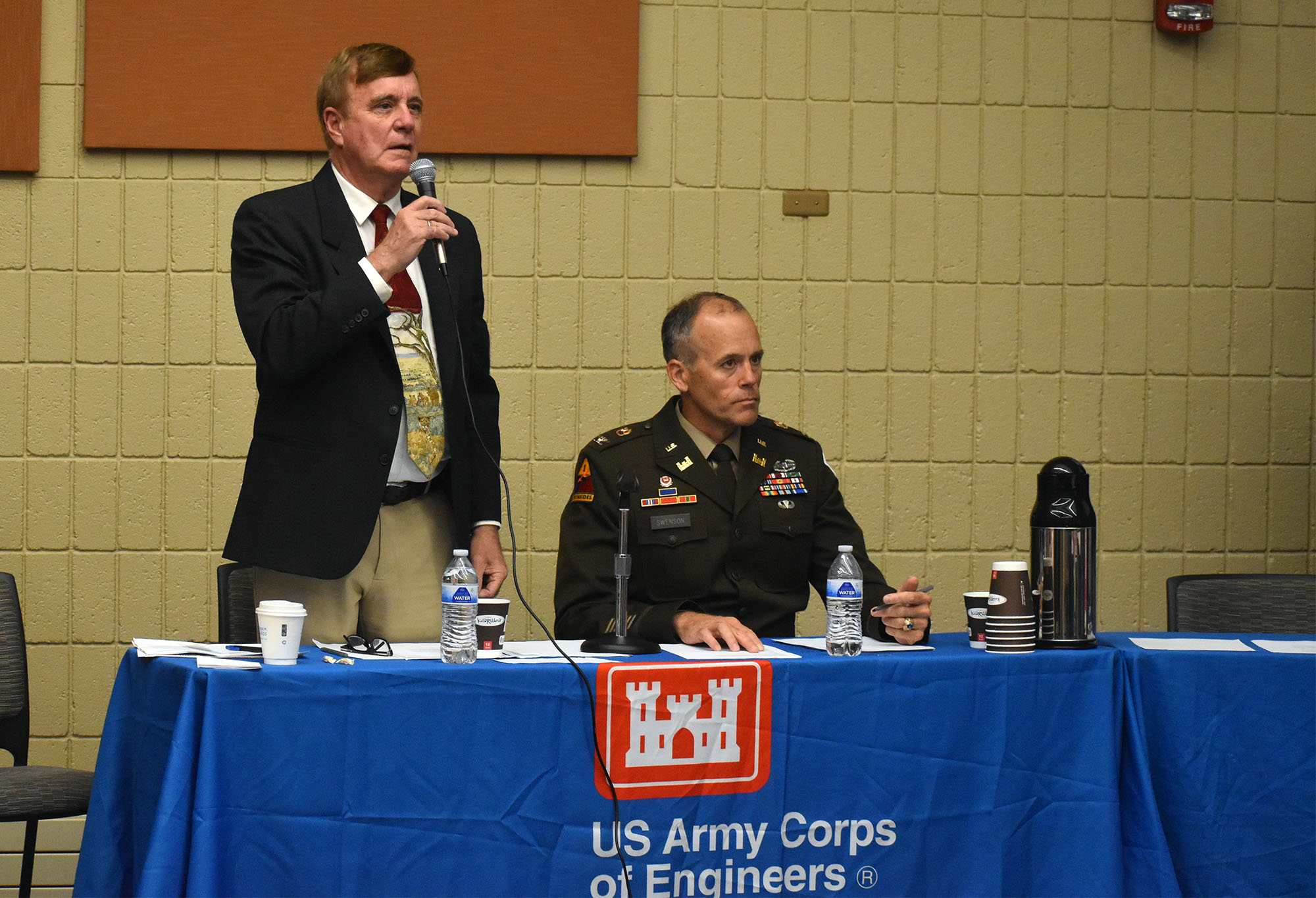
Federal review assesses project’s effects on tribe’s standards
Under the Clean Water Act, the Army Corps must provide a copy of the state’s decision to the Environmental Protection Agency. Once in hand, the EPA has 30 days to determine whether the project’s construction activities may affect the tribe’s water quality, according to Rebecca Graser, the Corps’ deputy regulatory division chief at the St. Paul District. The Corps can’t issue a permit until that process is complete.
“In the meantime, we continue to evaluate information received on the permit application, and we expect to make a decision in 2025,” Graser said.
The planned Line 5 reroute is expected to cost more than half a billion dollars, according to Paul Eberth, director of operations for Enbridge’s Midwest region. He said the Corps and EPA will determine whether the project poses effects to waters downstream.
“We expect to be able to, like we did with the state, meet the conditions in order to be able to secure a permit,” Eberth said.
However, Tony Wilkin Gibart, executive director of Midwest Environmental Advocates, argued the Corps’ environmental review thus far has been inadequate, noting environmental groups have called on the agency to conduct a full environmental impact statement.
“Ultimately, we believe that issuing the federal permits is not in the public interest and that the Army Corps should not authorize construction of the pipeline,” Wilking Gibart said.
Bigboy, the tribe’s vice chair, said the federal government has an obligation to uphold the band’s treaty rights, which preserve the right to hunt, fish and gather on off-reservation lands. The tribe was among 30 nations that urged President Joe Biden’s administration to uphold those rights in its appeal of a federal judge’s ruling last year.
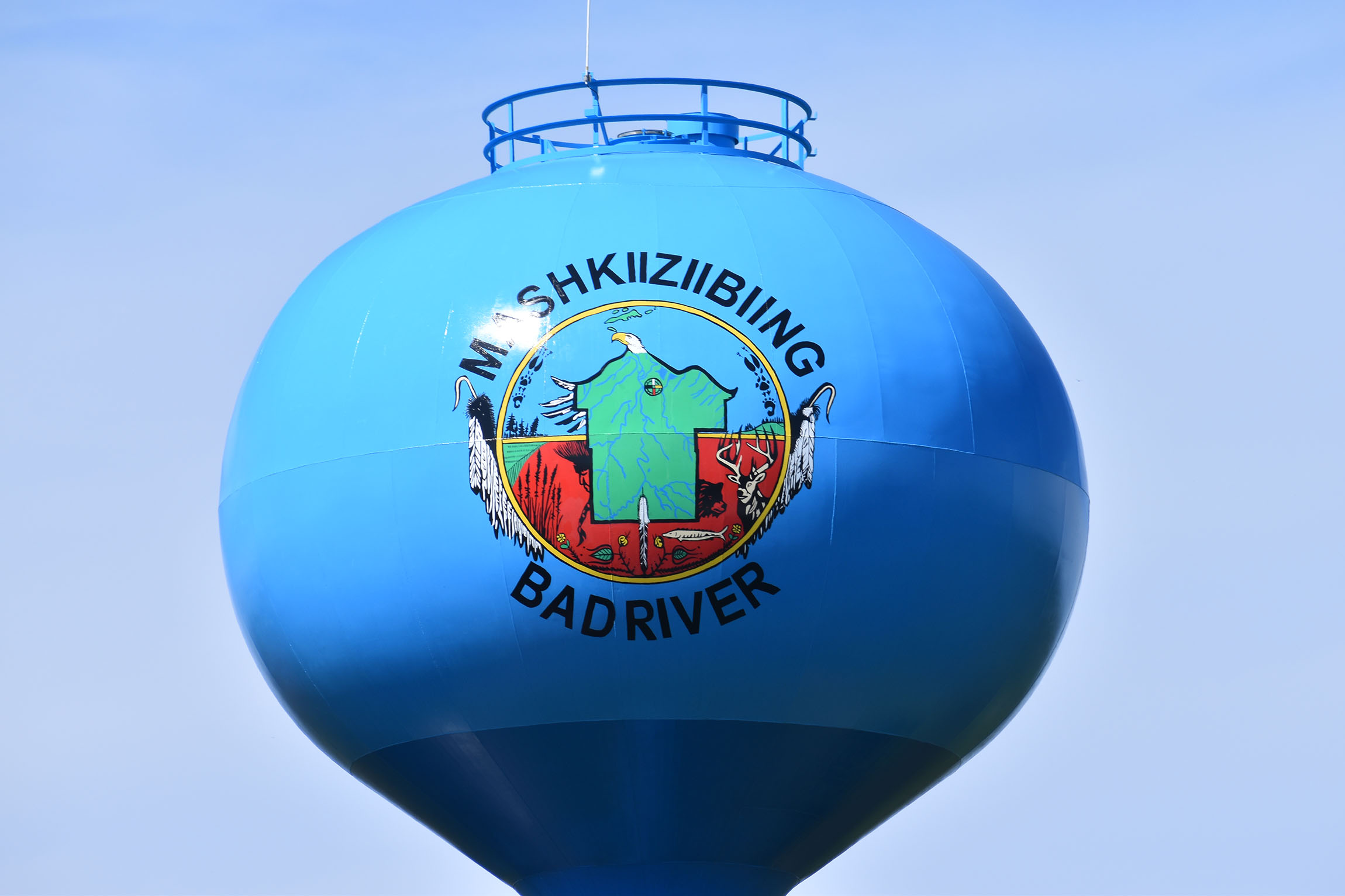
Legal challenges to Line 5 ongoing
In that decision, U.S. District Court ordered Enbridge to pay $5.15 million for trespassing on the Bad River tribe’s lands where pipeline easements expired on a dozen tracts of land. He also ordered the company to shut down or reroute Line 5 where it’s illegally operating by June of 2026. Both the tribe and Enbridge appealed the ruling in the Seventh Circuit Court of Appeals, and a decision is still pending.
“Every day that a decision is not made, hundreds of thousands of gallons of (oil and natural gas liquids) are going through the pipeline. I’d like to see that stop,” Bigboy said. “I would like to see them pay for their trespass.”
The Biden administration has urged the appeals court to reconsider the ruling to adequately compensate the tribe and re-examine the decision’s effects on tribal treaty rights, as well as foreign relations with Canada. The Canadian government has invoked a 1977 treaty that ensures the transport of oil between the U.S. and Canada.
Enbridge maintains the pipeline is a vital energy link for millions in the Midwest, noting a shutdown of Line 5 would make it more expensive to move products by truck or rail. An Enbridge expert previously estimated shutting down the pipeline would increase gas, diesel and jet fuel costs in Wisconsin and Michigan by an additional $20 million and $30 million in costs each year respectively.
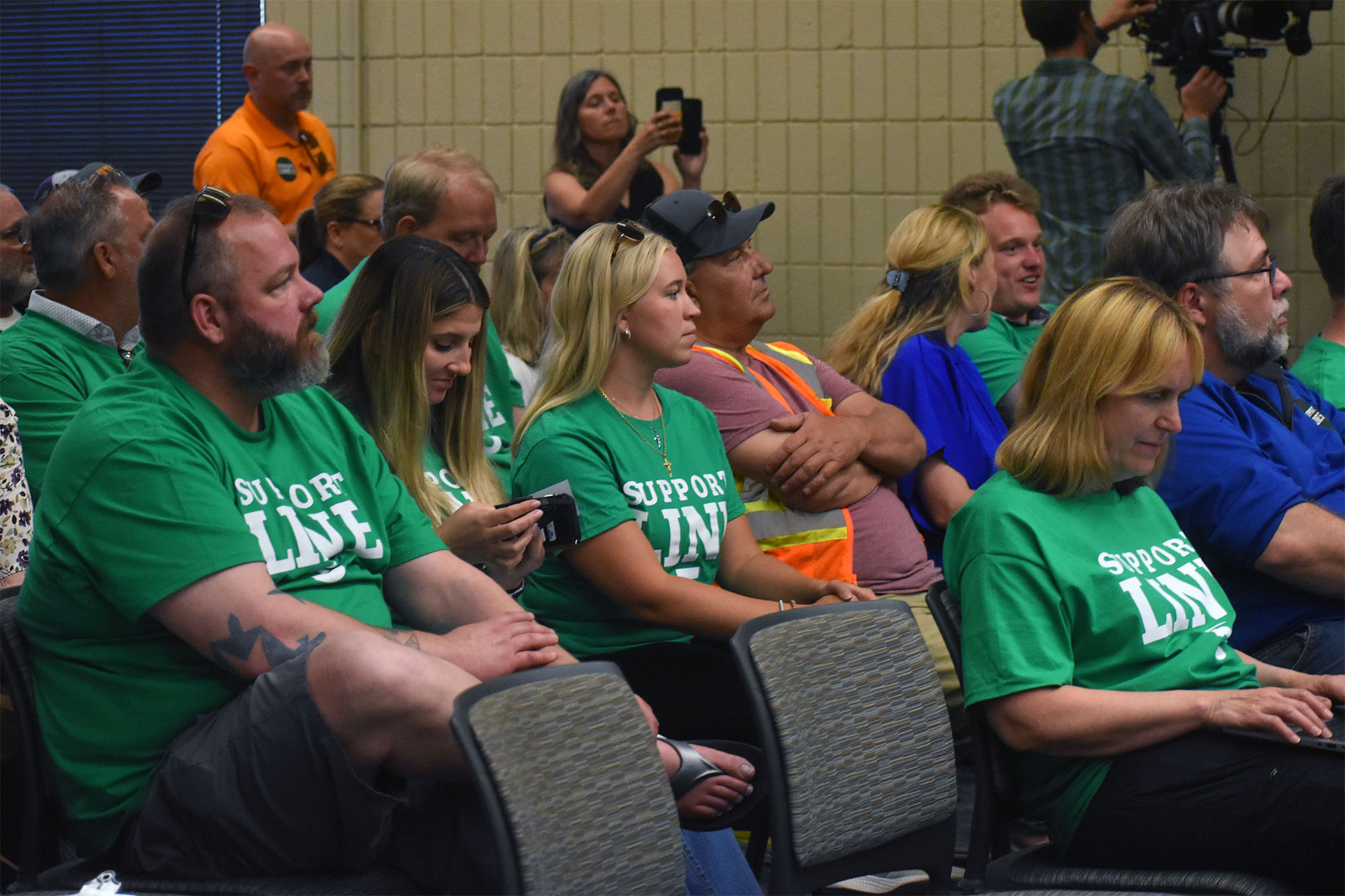
Brad Olson, president of the Wisconsin Farm Bureau, said he’s concerned about the effects that would have on Wisconsin’s nearly $105 billion agriculture industry.
“I think just keeping that steady supply of not just propane, but diesel and gas, is not just essential to Wisconsin farmers to operate and keep food moving, but also important to residents of rural Wisconsin to keep that propane close at hand, saving millions of dollars,” Olson said.
Supporters also tout the 700 jobs created through the project and roughly $135 million economic impact. Enbridge maintains that Line 5 has operated safely since 1953, saying it’s invested billions to improve inspection and operation of its pipelines.
“The relocation project will bring new pipe to a segment of Line 5 and moves Line 5 further away from Lake Superior,” Eberth said. “It deploys modern construction methods and techniques for its construction, so our belief is Line 5 will continue to be able to operate safely in the area.”
Opponents highlight Line 5 has had around 30 releases on land, spilling about 1 million gallons of oil. Enbridge is also responsible for a 2010 spill that released more than 1.2 million gallons of oil into the Kalamazoo River in Michigan, as well as four aquifer breaches on the Line 3 replacement in Minnesota that released hundreds of millions of gallons of groundwater.
“How can those things happen and you say to me that there’s a safe way of doing this?” Bigboy said. “It doesn’t make sense to me.”
The pipeline is also at the center of a legal battle in Michigan. In 2019, the state’s Democratic attorney general, Dana Nessel, sued in 2019 to shut down Line 5, which runs under the Straits of Mackinac that connects Lakes Michigan and Huron. That case is still ongoing and has been sent back to state court.
Wisconsin Public Radio, © Copyright 2025, Board of Regents of the University of Wisconsin System and Wisconsin Educational Communications Board.
